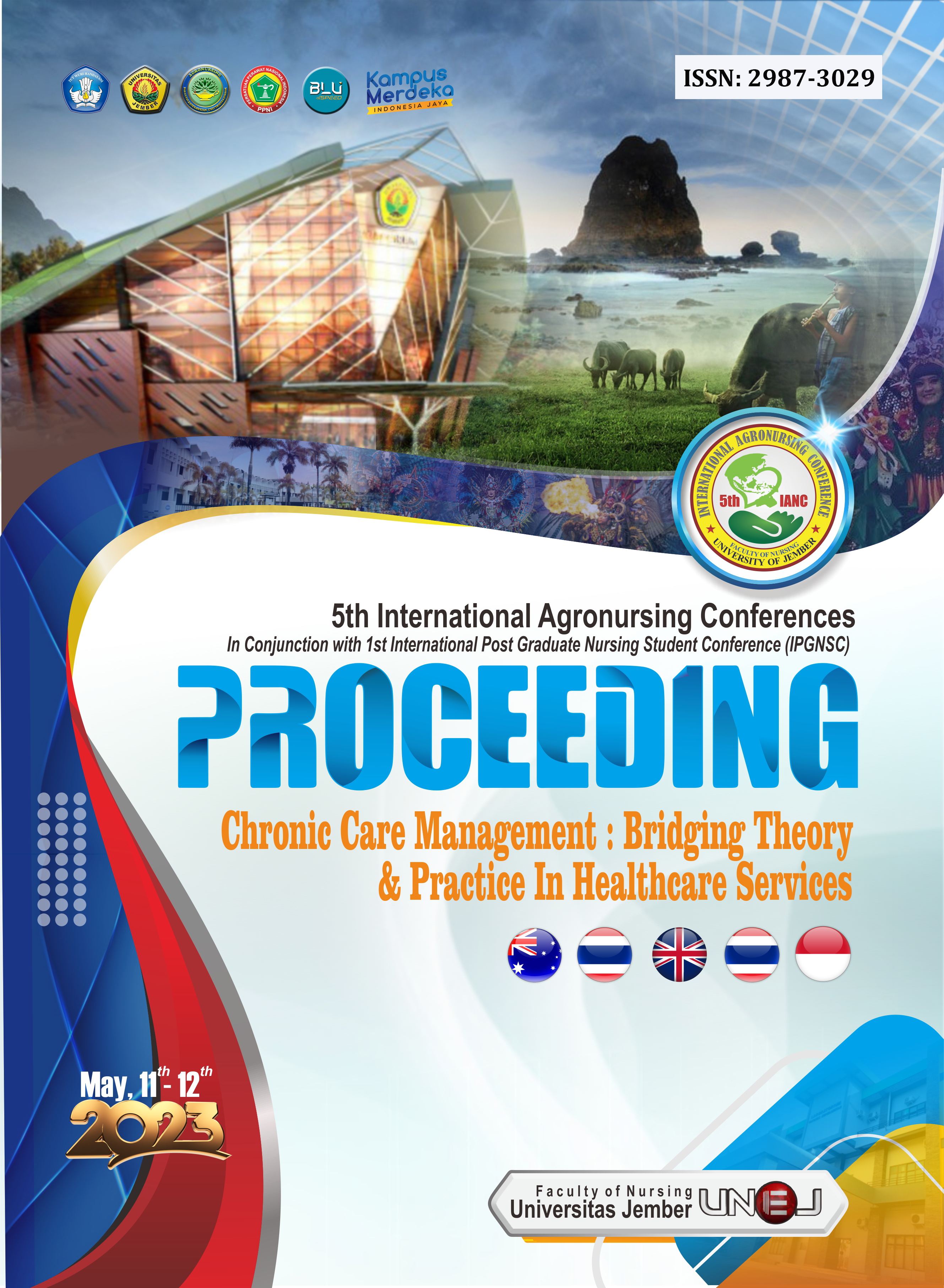UNCERTAINTY IN ILLNESS FOR PATIENT WITH LUNG CANCER: A LITERATURE REVIEW
Abstract
Background: Lung cancer is a disease that is one of the leading causes of death worldwide. Some patients experience psychological problems due to uncertainty in disease management, which can affect the treatment process and outcomes. This study analyzes the uncertainty, impact, and prevention strategies of lung cancer management. Methods: a systematic review using the PRISMA protocol and JBI critical appraisal tool to determine eligible articles. The five electronic databases used (Science Direct, PubMed, Scopus, IEEE Explore, and Google Scholar). The inclusion criteria included research on lung cancer published in English in the last ten years (2013 -2023). Result: The results showed that 11 articles met the inclusion criteria. The review results show several factors related to uncertainty related to lung cancer, including perceived physical symptoms, disease experience, cognitive factors, self-authority, social support, education, adaptation control, uncertainty inference buffering strategies, and the presence of health information. The impact of disease uncertainty is a lack of emotional control, increased stress, lifestyle changes and maladaptive behavior in health management. Nurses can implement prevention strategies by providing precise and comprehensive information, patient-centered palliative care services, improving coping through increasing family support or other social support, using positive emotional experiences of patients, evaluating service systems and planning continuous care programs. Conclusion: Patients' uncertainty in managing lung cancer can negatively impact disease management and disease management outcomes. Nurses can use appropriate strategies to improve adaptive coping abilities must be carried out to prevent adverse impacts and positively impact patient management and treatment outcomes.
Keywords: Illness, Lung Cancer, Patients, Uncertainty


